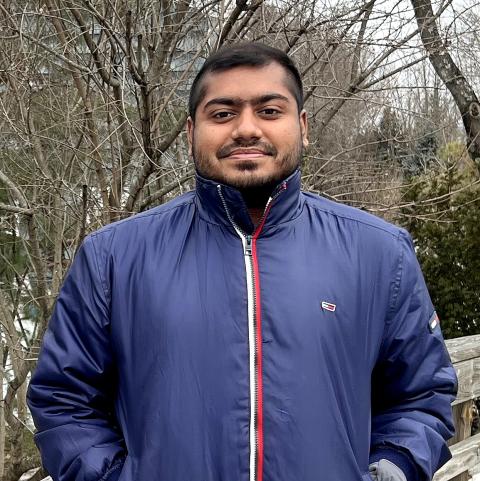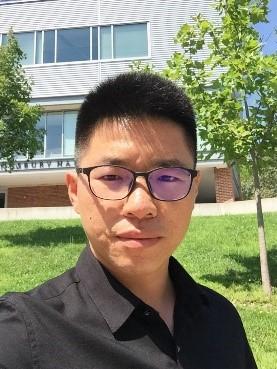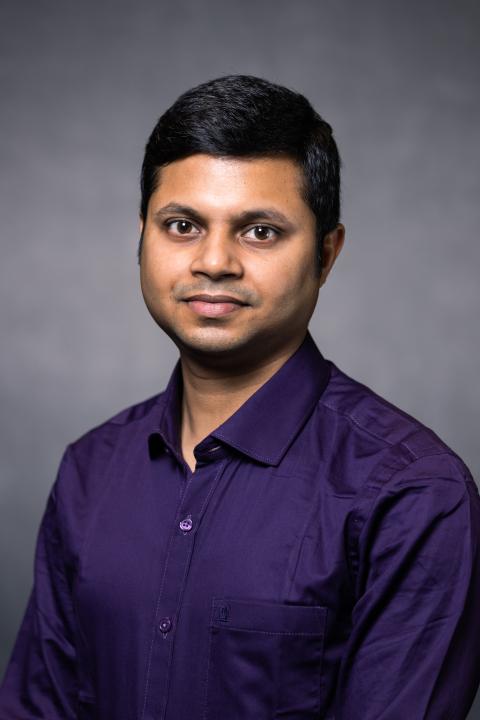
Mashrafi Alam Kajol
is a PhD student and Research Assistant in Electrical and Computer Engineering at the University of New Hampshire, who actively contributes to advancements in hardware security, reliability, and trust. With a strong background in digital circuit design and FPGA prototyping, Mashrafi has led impactful projects focused on on-chip sensor-based hardware security, secure design methodologies, multi-tenant FPGA security, and attack-resilient sensor design. His practical experience with tools and skills like Verilog, Cadence, and SPICE simulation software has been pivotal to his research and academic success. Currently, he is exploring new security challenges within in-sensor computing, including identifying vulnerabilities in the design flow that are susceptible to physical attacks.
Beyond his research, Mashrafi is deeply committed to promoting knowledge and awareness in STEM fields. He has served as a judge in STEM competitions and volunteered to organize cybersecurity workshops, demonstrating his dedication to community engagement and education. As a Teaching Assistant for junior labs (I and II), he has supported undergraduate students in grasping complex concepts in transistor-based circuit design and analysis, helping to inspire the next generation of engineers. He has also served as an Orientation Leader (OL) and a UNH IEEE Grad representative student.

Yue Liang
is a PhD candidate in the Wireless System Lab, supervised by Prof. Nicholas J. Kirsch. He began his PhD journey in 2019, with research interests in statistical signal processing, image processing, detection theory, and the application of machine learning techniques to acoustic signal processing. His earlier work focused on developing detection and classification algorithms for acoustically active marine mammals using passive acoustic data. This research provided valuable insights into the effects of climate change on marine mammals, such as habitat loss and shifts. The findings were published in Nature Scientific Reports, the IEEE Journal of Oceanic Engineering, and the IEEE Sensors Journal.
Yue has also served as a teaching assistant in the ECE department, where he led laboratory sessions for courses including ECE 401: Perspectives in Electrical and Computer Engineering, ECE 543:Introduction to Digital Systems, and ECE603: Electromagnetic Fields & Waves. Outside of his academic pursuits, he enjoys hiking and exploring nature.
Currently, he is working on a project that estimates the population sizes of terrestrial species, including the American bullfrog and the Mexican free-tailed bat, using passive acoustic data and machine learning techniques.

Maisha Mastora
is a 4th year PhD student in Resilient Architecture Lab advised by Dr. Dean Sullivan. She started her PhD program in 2021 with a prestigious CEPS fellowship awarded by College of Physical Sciences of UNH. Her research is focused on Embedded Systems Security , Vehicular and ADAS System Security. Her current research project emphasizes on software bug analysis and reliability in embedded systems using large-scale data. Previously, she has contributed to sensor system development and deployment, experimental design and analysis, wireless communication and antenna arrays. She has received Design Automation Conference (DAC) Young Fellow Award in Summer 2024 and Workshop for Women in Hardware and System Security Travel Award in Fall 2023.
Maisha has worked as a teaching assistant during academic years 2022-2025, where she assisted in five different sophomore and junior/senior level courses (ECE 541:Electrical Circuits, ECE 543: Introduction to Digital Systems, ECE 548: Electronic Design I, ECE 634: Signals and Systems II and ECE 653: Electronic Design III) to help students understand crucial electrical engineering concepts and implement those hands-on in lab sessions.
Beyond her academic activities, Maisha is a Certified Supply Chain Analyst (CSCA) and a trained classical dancer and singer. She has a thriving interest in leadership and community engagement activities as well. She was selected as one of the 200 participants out of 4000 applicants for "Asian Student Summit 2018" which took place in Seoul. She is a big fan of summer road trips with her husband. During weekends, she likes to paint on canvas and try out new recipes.

Mohammad Mezanur Rahman Monjur
Ph.D. Student
Advisor: Professor Qiaoyan Yu
Research Topic: Hardware security, system modeling, and design system reliance for embedded system and low power IoT devices used in advanced manufacturing
Research Laboratory: Reliable and Secure VLSI Systems Lab

Shuva Paul
is a Ph.D. student supervised by Dr. Nicholas J. Kirsch, in the Wireless System Lab. His research focuses on wireless communication, sensor networks, signal processing, localization & tracking, vehicular technology, and data fusion. He is developing a simulation tool and experimental testbed to detect and localize vulnerable road users, incorporating passive RF detection, sensor fusion, advanced communication, and security technologies in a U.S. Department of Transportation (USDOT) funded project. Previously, he collaborated with WPI and UMass Lowell research teams on an NSF & Verizon-funded project, where they developed a novel opportunistic approach of passive RF localization for detecting “phantom car” attacks.
Shuva was a finalist in the UNH Three Minute Thesis (3MT) competition (two consecutive years) and won the 2024 People’s Choice Award. His research excellence earned him a spot in the “2024 Students of the Year” list by the New England University Transportation Center consortium.
Shuva aims to bridge the gap between academia and industry by combining practical knowledge with research expertise, backed by five years of industry experience. Before joining UNH, he was a Senior System Engineer in telecommunications. He also has extensive teaching experience, having worked as a Teaching Assistant for various freshman, sophomore, and junior-level courses in the ECE department and served as an Adjunct Lecturer at Daffodil International University in 2014.
Beyond research and teaching, Shuva serves as the Vice President of the UNH Graduate Student Senate (GSS) and is involved in several committees, including the UNH Provost and Executive VP search committee (2025), UNH Graduate Council (2024/25), and CEPS & ECE Graduate Student Advisory Boards (2022-present). He represented UNH in the Accelerate to Industry (A2i) immersion week at North Carolina State University (2023) and acted as an Orientation Leader for new international graduate students at UNH in Fall 2023. Outside of academics, Shuva enjoys building community, connecting with others, hiking, playing the flute, and playing cricket.

Prashant Purohit
is a Ph.D. student at the Biomedical and Wearable Technology Lab supervised by Prof. John LaCourse. His research area and interests are Biomedical Devices and Wearable Technology. He worked on developing a prototype for the smart syringe, which provided information about the pressure applied to the syringe and the needle trajectory to the target. He is currently working on developing a training tool for experienced and inexperienced nurses in Neonatal Resuscitation. The training tool will provide real-time insights into various dynamics of neonatal chest compressions: chest compression depth, recoil, force, rate, and different fatigue levels while performing Neonatal Cardiopulmonary Resuscitation. Prashant has also worked as a teaching assistant in the ECE department. He coordinated labs for ECE 537: Introduction to Electrical Engineering, and ECE 784/884: Biomedical Instrumentation. His other interests include hiking, listening to music, sports activities, and traveling.

Faishal Yousuf
is a Ph.D. student in Electrical and Computer Engineering at the University of New Hampshire. His research focuses on AI-powered environmental sensing, using embedded machine learning , IoT, and wireless sensors to monitor environmental parameters in real time.
He has developed energy-efficient, AI-enabled sensing systems that process data on-site, reducing power use and improving scalability. His work includes pressure-based wireless sensor for measuring soil frost depth and in-situ techniques for assessing soil properties, making environmental monitoring more accurate and efficient. His work, supported by the National Science Foundation, advances smart sensing and embedded intelligence, bridging the gap between AI research and real-world environmental applications.
Beyond research, Yousuf has been a Teaching Assistant for ECE/ME 772 & 872 (Control Systems), ECE 537 (Introduction to Electrical Engineering), and ECE 647 (Random Processes and Signals in Engineering), mentoring students in hands-on learning.